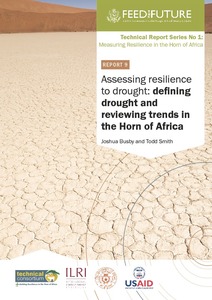Location
Vision, mission and strategy
ILRI's strategy 2013-2022 was approved in December 2012. It emerged from a wide processof consultation and engagement.
ILRI envisions... a world where all people have access to enough food and livelihood options to fulfil their potential.
ILRI’s mission is... to improve food and nutritional security and to reduce poverty in developing countries through research for efficient, safe and sustainable use of livestock—ensuring better lives through livestock.
ILRI’s three strategic objectives are:
- with partners, to develop, test, adapt and promote science-based practices that—being sustainable and scalable—achieve better lives through livestock.
- with partners,to provide compelling scientific evidence in ways that persuade decision-makers—from farms to boardrooms and parliaments—that smarter policies and bigger livestock investments can deliver significant socio-economic, health and environmental dividends to both poor nations and households.
- with partners,to increase capacity among ILRI’s key stakeholders to make better use of livestock science and investments for better lives through livestock.
This is ILRI’s second ten-year strategy. It incorporates a number of changes, many based on learning from the previous strategy (2000–2010, initially produced in 2000 and modified in 2002), an interim strategy (2011–2012) and an assessment of the external and internal environments in which the institute operates.
Members:
Resources
Displaying 261 - 265 of 1152Feed the future innovation lab for small-scale irrigation in Ghana: Opportunities and challenges to integrate fodder
Assessing resilience to drought: defining drought and reviewing trends in the Horn of Africa
Animal genetics training resources: Capacity building for sustainable use of animal genetic resources in developing countries
This training resource is presented in five modules. 1) Global perspectives on animal genetic resources for sustainable agriculture and food production in the tropics. This module provides some insight into the need for better use of animal genetic resources (AnGR) in the context of projected demand for food in developing countries until 2020. 2) Improving our knowledge of tropical indigenous animal genetic resources.




